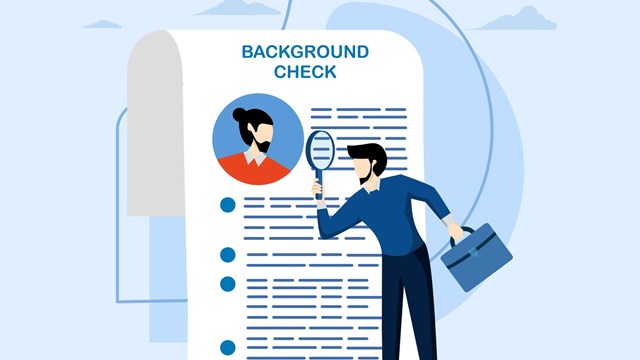When buying into a co-op, condo, or HOA, you’re not merely buying a home—you’re buying into a community. These communities are governed by policies and procedures that typically include prospective member requisites, as well as the methods or processes for obtaining such information. Ultimately, it is all furnished in what is known as the “board package”—the dossier of letters, statements, disclosures, forms, and other documentation that the board requires from prospective buyers as proof of identity, financial condition, legal status, background, and character.
There are legal limits to what a board is allowed to ask of prospective owners and tenants, however, and there is both extensive case law and recently-proposed legislation that puts those limits to the test. So before your board makes an inadvertent slip-up that lands your co-op in a housing discrimination dispute, read on to make sure you understand what should—and should not—be included in a board package and interview.
The Requirements
Co-ops differ from condos in that their boards have the statutory right to accept or reject an applicant for any reason—or for no reason—as long as there is no discrimination or bad faith involved (more on that later). Mark R. Rosenbaum, an attorney and principal with the law firm of Fischel Kahn in Chicago, explains. “Condos do not have [a right of] approval; condos at most have a right of first refusal,” he says. “That simply means that if a condo board doesn’t approve of a buyer for whatever reason, the condo can decide to buy the unit that is up for sale on exactly the same terms that the contracted buyer had agreed on to buy it. In a co-op, however, the board typically has a right of approval. They can reject a sale. They can say, for example, ‘We don’t want that buyer because we don’t think he’s financially viable.’”
Eric Levine, a real estate agent with New York City brokerage Level Group, has helped prepare countless board packages in his 15 years in the industry. According to him, “The standard items that almost every co-op board package will request are: 1. letters of employment; 2. reference letters—usually a combination of personal and professional, and the number of items can vary, from one of each type to up to three or four of each type; and 3. tax returns, usually for between one and three years of history. Most co-ops want to see a summary of the purchaser’s finances, primarily focused on assets and liabilities to arrive at a net worth statistic.”
What can become onerous for applicants is the volume and detail of supporting information that some boards require. “In some cases,” continues Levine, “a co-op is only interested in the latest balances supported by statements issued by the financial institution. But I have seen [boards require] up to four months of supporting documentation. My sense is that they’re trying to establish some sort of pattern in finances—not just looking at a single point in time, but looking at a period of time.”
He adds that a landlord reference letter is also typically requested—although not necessarily required, since not all purchasers are coming from a rental situation—and that all of the documentation requirements pertain to each individual or entity that will be named on the stock and lease.
These requirements, he says, have remained fairly consistent during his years in the biz. What has changed, according to Levine and other real estate professionals, is the move to online platforms for uploading, signing, and reviewing the contents of a board package. To Levine, “The use of digital platforms allows for a more secure environment for all parties.” (It also saves a LOT of trees.)
The Add-Ons
While the primary purpose of vetting potential buyers through the board package and interview process is financial—ensuring that the applicant has the means to uphold their monetary obligations to the corporation, as well as maintaining fiscal solvency for the corporation and value for every shareholder—every co-op is unique. Each board has some leeway to adapt its applicant screening process in furtherance of its community’s specific character, values, or caché.
According to Stuart M. Saft, practice group leader of national law firm Holland & Knight’s New York Real Estate Practice Group who is also licensed in Florida, “The board approval process may seem ‘snooty’ to some, but this isn’t about snootiness; it is about maintaining a quality of life. To those of us who live in these buildings and serve on the boards, it provides a measure of protection from a difficult resident, like those who flout the rules because he or she [thinks they] can do anything they want in their apartment.”
And it’s not always about financial wherewithal. There are plenty of well-circulated stories about celebrities from Madonna to Richard Nixon facing rejection from co-op boards. After all, with notoriety comes knowledge of past deeds. While such stars might easily satisfy a co-op’s required debt-to-income ratio, their reputation for controversy or the constant presence of fans, an entourage, or Secret Service might be contrary or impractical for a small, quiet co-op with one 100-year-old elevator.
As such, aside from net worth, source(s) of income is also important to boards, not necessarily because it is legally questionable, but because it speaks to what kind of neighbor an applicant might be. Stuart A. Fullett, managing shareholder with the law firm of Fullett Swanson PC in Barrington, Illinois, relates a screening story of this nature. “At one of my co-ops in the city, I had an attorney who was looking to buy,” he says. “The association did their due diligence. They realized that attorneys, of their own nature, tend to be litigious—but this person in particular had a lot of lawsuits on behalf of himself. And the board looked at that and said, ‘This is not the type of person we want in here.’ So he was rejected. And his comment was, ‘I’m going to sue.’ And my comment was, ‘That’s why you’re being rejected.’”
The No-Nos
A co-op board’s right to approve or reject an applicant for any reason or none at all has been known to butt up against federal fair housing law, which prohibits discrimination on the basis of race, color, national origin, religion, sex (including gender identity and sexual orientation), familial status, or disability. New York City, which has the nation’s most stringent human rights laws as pertain to housing, extends that prohibition to “actual or perceived race, creed, color, national origin, gender, age, disability, sexual orientation, uniformed service, marital status, partnership status, alienage or citizenship status of any person or group of persons, or because of any lawful source of income of such person or persons, or because children are, may be or would be residing with such person or persons.”
Since the enactment of the Fair Housing Act in 1968, there have been numerous legal cases against cooperative housing boards alleging unlawful discrimination. However, discrimination is difficult to prove. Moreover, governing boards are protected by the Business Judgment Rule, which bars a court from intervening in actions or decisions made “in good faith”—that is, within the fiduciary standards of loyalty, prudence, and care directors owe to stakeholders. Even beyond that, engaging in litigation is a costly and burdensome endeavor. Getting satisfaction through the legal process is far from guaranteed in these scenarios.
There are notable exceptions, however. The 1997 case of Biondi vs. Beekman Hill House Apartment Corp. has had far-reaching implications for both housing discrimination and indemnification of board members from punitive damages in lawsuits. In this case, a Black couple—both attorneys—were denied from subletting an apartment at the Beekman Hill co-op for reasons that the couple believed were racially motivated. According to Saft, the federal court jury’s decision to award $640,000 in both compensatory and punitive damages to the couple surprised both board members and attorneys at the time. The fact that board members were held personally liable for the damages changed the prevailing notions of director indemnity.
“Biondi made boards nervous and careful,” recalls Saft, “which is good. Boards are more cautious as a result of this case. Biondi confirmed that a board member would be personally liable for discrimination and that insurance would not protect a board member’s bad faith. This was not new law, but rather reinforced [other case law that held] that bad faith was not covered by the Business Judgment Rule.”
Boards and/or the committees tasked with screening applicants must avoid asking directly about any protected class—although the applicant’s voluntary submission of such information is fair game, as is information gleaned from meeting the applicant face-to-face (or on video conferencing platforms, as the case may be for some buildings and communities during and since COVID). Aside from assessing the financial bona fides, screening committees are essentially asking themselves, “Would I want this person as my neighbor?”—an inherently subjective question that has a lot of potential for bias, leading to legally gray areas in the process of screening and interviewing prospective shareholders. The rejection of the lawyer in Fullett’s Illinois example might beg the question in New York whether the applicant was being discriminated against based on his lawful source of income—one of the city’s protected classes in housing.
What’s Next
In 2021, Westchester County, just north of New York City, enacted laws that place time limits on co-op boards to review and approve or reject an applicant and that require a reason to be given for any rejections. Similar and even stricter bills are pending before the New York City Council that would subject boards to financial penalties and legal fees for failing to respond in proposed timeframes; disclose co-op finances; or provide a detailed, sworn statement certifying the basis for any rejection. Such bills have the potential to dissuade people from running for and serving on their co-op’s board given the exposure to liability, increase D&O insurance costs for co-ops and/or make it more difficult to obtain, and stymie the transactional process for buyers and sellers as boards adjust to such a sea change if passed, note detractors.
On the other hand, adding clarity and transparency to a transaction that has significant consequences for both buyer and seller does have potential benefits to both parties. As Levine remarks, “I think that what sometimes gets lost in this process is that these decisions are actually real-life, highly important events. In many cases—especially in New York, because of the high cost of housing—timing is of the essence for a lot of people.” On one level, he says, “when a co-op does not respond in a timely manner, it sometimes rubs people the wrong way.” And on a practical level, he says, “this is especially relevant in the last six months when rapidly rising rates can be a costly situation for a potential purchaser.” Missing a rate-lock period or the end of a loan offer because a co-op board was not forced to respond to an application in a given timeframe can mean that both the buyer and the seller lose out.
“If there’s reasonable time parameters put forth—much like most people’s lives: you have a work deadline, you have an academic deadline there, the world is based on deadlines—I think it would just keep all parties on their toes, honest, and with published expectations for both the co-op and the purchaser,” Levine continues.
As for required reasons for rejections, “that one’s a little harder” to justify, according to Levine. “Most agents will try their best to read between the lines, perhaps to give comfort or lack thereof to their client as to why they weren’t approved.”
Ultimately, the expectations of every party in a co-op or condo transaction—the buyer, the seller, and the board, and the agents of each—are that everyone is conducting themselves in an honest, law-abiding, and straightforward manner. Keeping those factors in mind will make the screening process much less painful for everyone involved.
Darcey Gerstein is Associate Editor and a Staff Writer for CooperatorNews.










Leave a Comment